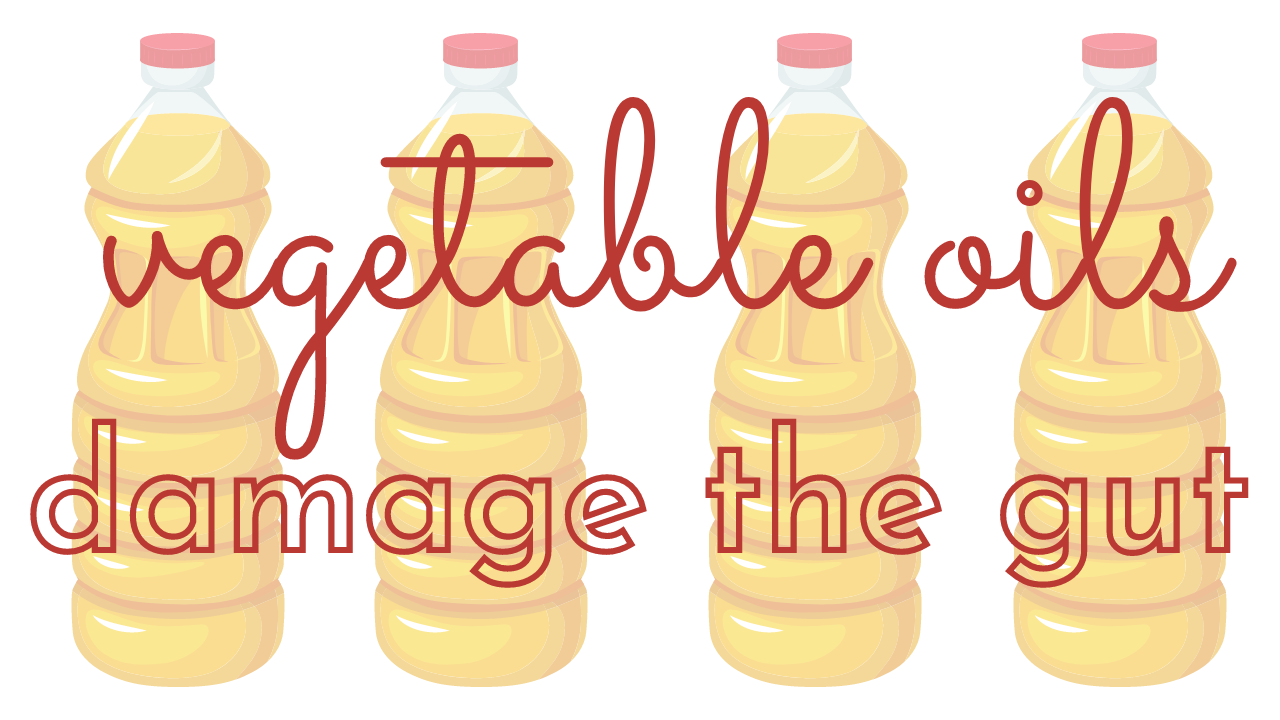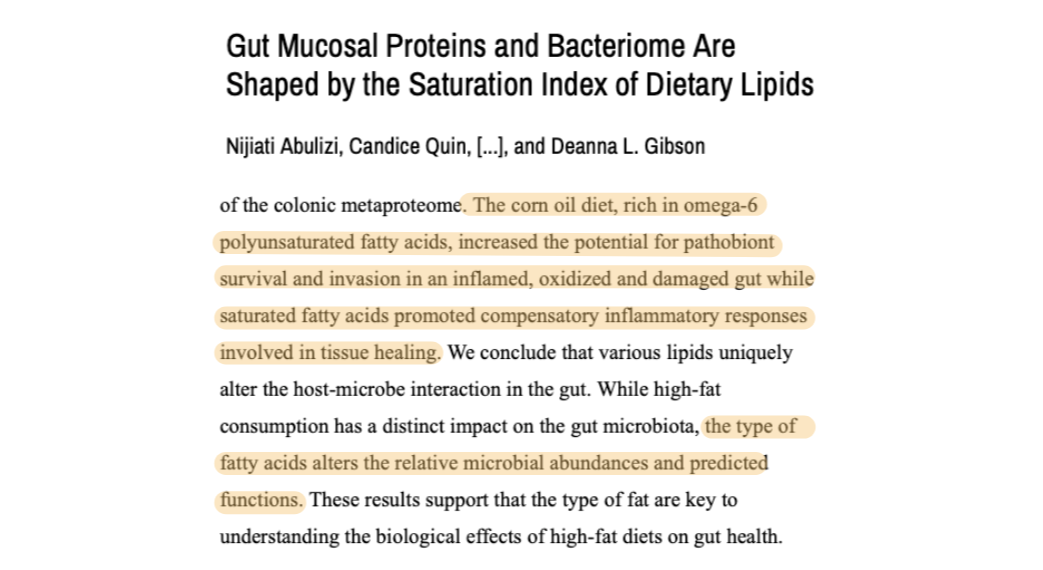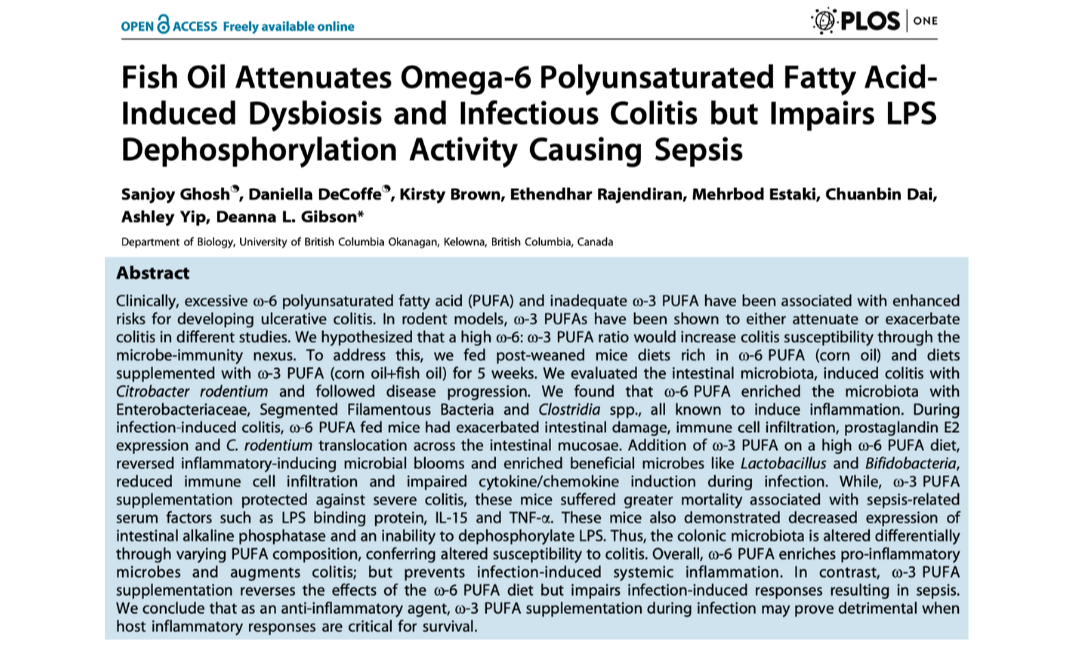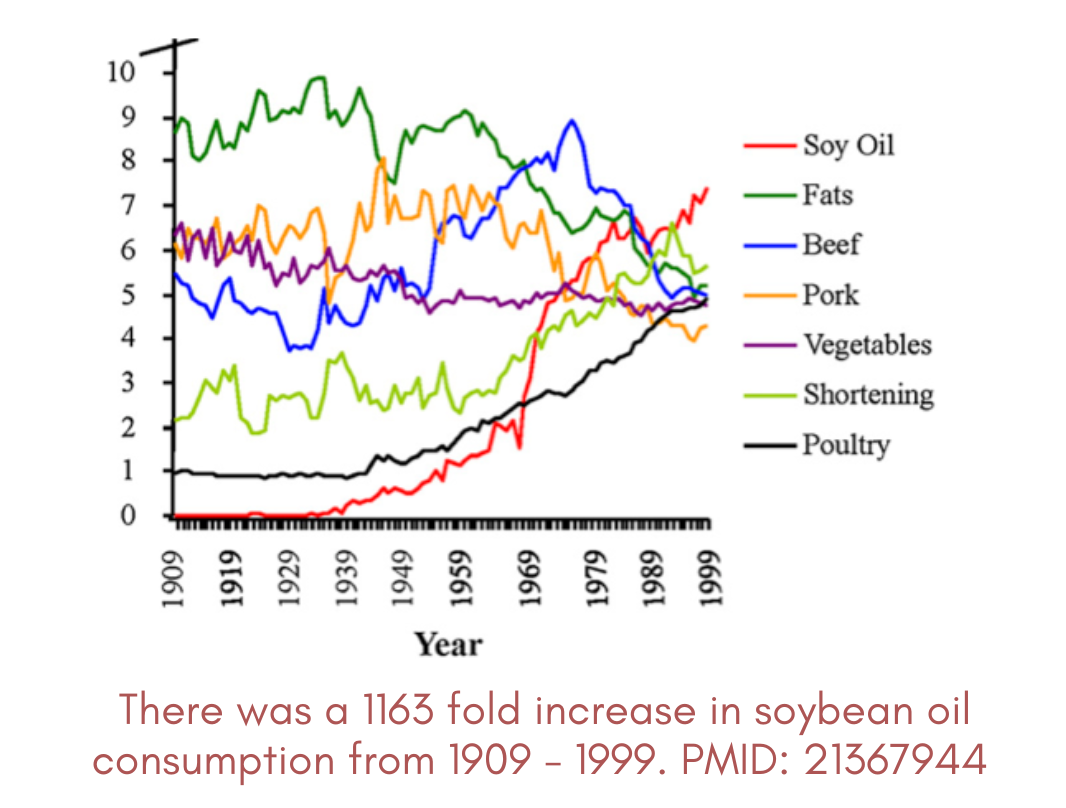Vegetable oils wreck your gut
Apr 08, 2023
You may have heard about how bad vegetable oils are by now. But have you ever wondered why?
My biggest beef with vegetable oils is that they negatively impact your metabolic rate and gut health - the two most important factors that impact your state of health.
So, yah. It's kind of a big deal that our food system is centered around them.
And that mainstream nutrition advice from Harvard still recommends vegetable oil as a "healthy fat" because it lowers serum cholesterol.

But what about the well known fact that PUFAs (polyunsaturated fats) are very unstable molecules? (And vegetable oils are high in PUFAs, specifically Linoleic Acid, an Omega-6).
"Polyunsaturated fatty acids (PUFAs) are highly susceptible to lipid per oxidation because of their unstable double bonds." (ref)
"PUFAs, in this sense, are like delicate glass... When glass shatters, it invariably leaves behind a mess of dangerous shards... Likewise, when PUFAs shatter they leave behind shards such as MDA, which are capable of damaging proteins, DNA and other structurally and functionally important components of our cells."
- Chris Masterjohn, PhD
Having more of these fats around creates a potentially damaging internal environment in our body. Thus, there are long term negative health consequences with high PUFA consumption.
Let's discuss a few of these consequences.
First, vegetable oils wreak havoc on the gut by increasing tight junction permeability. (ref)
Tight junctions play an important role in intestinal barrier function by maintaining selective permeability. Well, unfortunately, PUFAs can increase the permeability of tight junctions. (not what we want!!)
In one study, the Omega-6 PUFA rich diet increased host inflammation, oxidative stress, and gut barrier dysfunction.

Okay so I will just up my Omega 3s, the healthy PUFAs, right?
Ehh, not so fast.
High dietary Omega 6 PUFA consumption has been shown to shift the gut microbiome and can induce gut dysbiosis and inflammation. (ref)
But the authors of this study point out that while Omega 3 PUFAs may lead to short term inflammation reduction, this was due to immune suppression, which eventually led to other health problems and increased mortality.
Saturated fats are stable molecules and are protective. Unsaturated fats are unstable and can cause a lot of damage when consumed in excess. So, it makes sense why the gut can be damaged in the long run with high PUFA consumption.

Another consequence of high PUFA consumption is that PUFAs can negatively impact thyroid and metabolic health since they interfere with your cell's ability to utilize active thyroid hormone.
It's great that our body can convert T4 to active T3.
But to actually increase energy production, our cells must be able to access that T3.
In fact, tissue T3 levels are different than serum T3 (ref), which is why one of the best ways to assess metabolic and thyroid health is through body temperature and pulse measurements (which I discuss in depth here), since higher cellular T3 increases the metabolic rate, raises body temperature, and increases our pulse. (ref)
Understanding this helps us realize why it's a bad thing that PUFAs interfere with your cell's ability to use active thyroid hormone, T3.
"Safflower oil (high in Omega 6 PUFA) was more effective than tallow as a repressor of T3 action... polyunsaturated fats uniquely suppress the gene expression of lipogenic enzymes by functioning as competitive inhibitors of T3 action, possibly at the nuclear receptor level." (ref)
"The potency of unsaturated fatty acids for INB (Inhibition of Nuclear T3 Binding) was greater than of saturated fatty acids, and increased with the number of double bonds." (ref)
"The effects of selected fatty acids (linoleum - PUFA, oleic - MUFA, and palmitic - SFA) on thriodothyronine (T3)-receptor binding were compared... the rank order of potency for inhibition was linoleum acid greater than oleic acid greater than palmitic acid." (ref)

It's never about extremes.
You cannot eat a zero PUFA diet and that is not the goal.
But you do not need to over consume PUFAs. You do not need to add more Omega 3s to your diet if you are consuming animal fats. You do not need to add fish oils, you do not need to force flax seeds down your throat. And you certainly don't need to increase your vegetable oil consumption.
Instead, eat real, whole foods. And for your fats, prioritize animal fats that are rich in the stable, protective saturated fats.
Just like your great grandma.
This will provide your body with more of an optimal fatty acid profile without over thinking it.
Plus, this approach just makes sense.
Vegetable oils did not exist 100 years ago.
People did not force fish oils down their throat.
They enjoyed a diet rich in animal products, and consumed saturated fat without fear. And the rates of autoimmune and chronic diseases we face today was certainly not as high.

If learning more about how our great grandmothers cooked intrigues you, I dove into this topic last summer when I explored hundreds of vintage cookbooks - so fun! You can check out my summary here.

